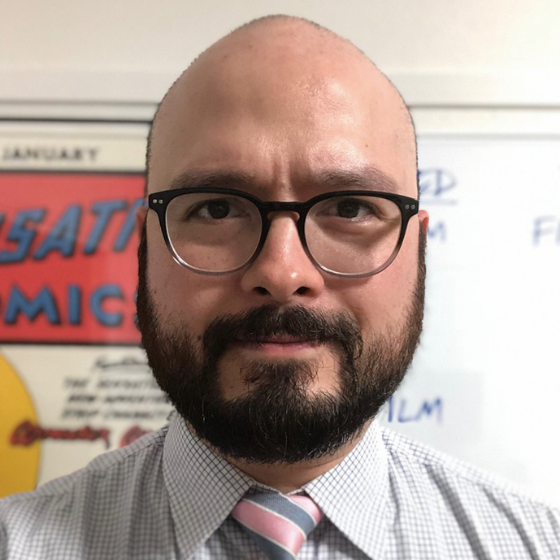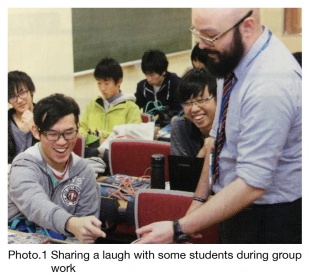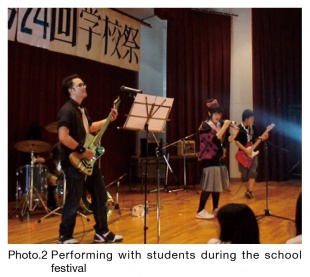Organization for Fundamental Education
- Key words
- Asian Studies, World Cultures, History, Technology, Dialects and Accents

B.A. East Asian Languages and Cultures Studies / Assistant Professor
Edwin Hart
Education
Bachelor of Arts in East Asian Languages and Cultures Studies, minor in Comparative World Religions, Rutgers University
Professional Background
JET Programme ALT 2006-2011
English Language Instructor, International English School (Fukui) 2011-2014
Assistant Professor, Fukui University of Technology 2014-present
Consultations, Lectures, and Collaborative Research Themes
Use of Technology in the Classroom; Lessons and Strategies for Non-Academic Senior High Schools; Introduction to American English Dialects
Main research themes and their characteristics
「Sparking Motivation by Sparking Interest」
When I first started teaching in Japan in 2006 as an ALT on the JET program, I quickly found that greater than the challenge of teaching English language to students was first getting them motivated to participate. Teaching primarily in lower-level, non-academic high schools, I was directed to “maintain interest” as my primary objective. I began to try to understand the students’ interests by sharing my own, and found that we had many in common (taste in music, movies, video games, sports, etc.). Much of the pop culture the students consumed was originally in English (Harry Potter, Pirates of the Caribbean, and Spider-man were immensely popular at the time), so I decided to try and harness that interest and bring it into the classroom thematically within the framework of something familiar to them. I modeled many of my activities on Japanese variety shows on TV at the time (Tonneruzu no Kuwazu Girai, Nep League, Quiz Hexagon, etc.). I found that the students were able to participate freely, openly, and most importantly, enjoy the content of the lesson. The enjoyment of the content not only sparked their motivation, but also boosted their confidence to try to participate. This willingness to use English sometimes extended outside of the classroom in the form of performing English songs. I was even fortunate enough to have been asked by some students to help them perform during the school festival.
While I am no longer teaching at the non-academic high school level, I still try to apply the same philosophy to my classes, albeit not in the form of variety show style games (for the most part). A recent development in my quest to engage the students is through a Comparative World Cultures class which I was recently entrusted with. Drawing on my experiences from my university days in cultural studies as well as comparative religions, my goal is once again to use material which students may be familiar with (from historical cultural icons such as Yoshitsune, to modern cultural icons like Spider-man), and use their interest in the subject matter to flex their creativity and try to use English in ways which they previously never had in other classes. Many students have never been pushed to write or express themselves in long-form English before, so the learning curve can be quite steep. However, the feedback I received from students after the first year of teaching the course has been positive and extremely encouraging.
My father, an educator until he retired, once told me that no one ever stops being a student - especially teachers. After 14 years of teaching, I can attest to the accuracy of my father’s adage and look forward to learning more from my students and colleagues in this institution.


